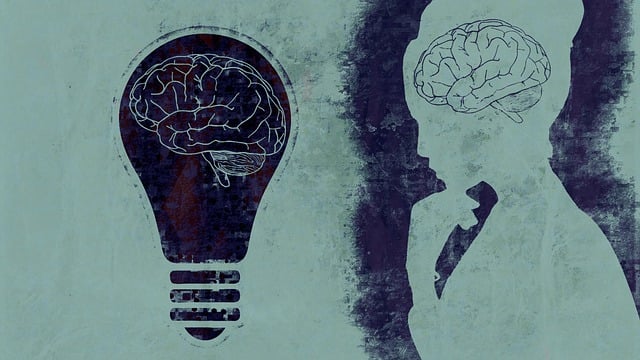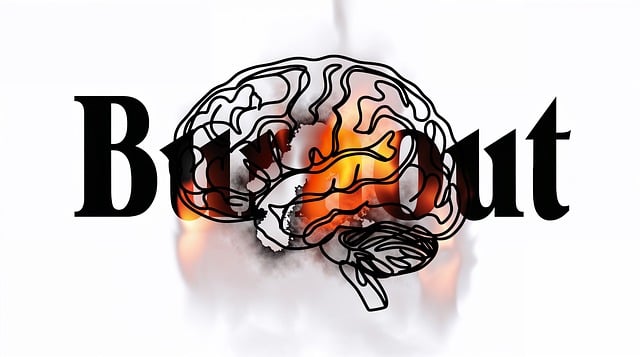Substance abuse stems from underlying mental health conditions like bipolar disorder, depression, or anxiety, underscoring the need for comprehensive prevention strategies. Mental health professionals use risk assessment tools like Burnout Prevention Strategies and Mental Wellness Journaling Exercises to identify at-risk individuals. Early intervention, such as Castle Rock Bipolar Disorder Therapy, can effectively manage mood episodes and reduce the likelihood of substance abuse. Integrating mental wellness journaling into education, public awareness campaigns, and cultural competency training for healthcare providers are also crucial. Long-term recovery through evidence-based treatments like Castle Rock Bipolar Disorder Therapy, combining individual therapy and group support, offers holistic care tailored to individual needs, fostering resilience and healthier living.
In a world where substance abuse poses significant risks, understanding and mitigating these dangers is paramount. This article explores comprehensive strategies for reducing the likelihood of substance misuse, focusing on prevention, early intervention, and long-term recovery solutions. By delving into these sectors, we aim to equip individuals and communities with tools to combat issues like Castle Rock Bipolar Disorder Therapy, emphasizing the importance of tailored support and effective treatment plans.
- Understanding Substance Abuse and Its Risks
- Strategies for Prevention and Early Intervention
- Effective Treatments for Long-Term Recovery
Understanding Substance Abuse and Its Risks

Substance abuse is a complex issue that can stem from underlying mental health conditions such as bipolar disorder, depression, or anxiety. Understanding these risks is crucial in implementing effective prevention strategies. Individuals with bipolar disorder, for instance, may turn to substances as a means of self-medication to cope with mood episodes, potentially leading to severe consequences and burnout for both the individual and their support network.
In light of this, mental health professionals play a vital role in risk assessment and early intervention. By incorporating practices like Burnout Prevention Strategies for Healthcare Providers into their routines, professionals can enhance patient care while mitigating risks. Risk Assessment for Mental Health Professionals serves as a critical tool to identify susceptible individuals, enabling them to access appropriate Castle Rock Bipolar Disorder Therapy or other specialized treatments. Furthermore, encouraging patients to engage in Mental Wellness Journaling Exercises can empower them to track and manage their mental health proactively, reducing the likelihood of substance abuse as a coping mechanism.
Strategies for Prevention and Early Intervention

Early prevention and intervention are key strategies in mitigating substance abuse. By implementing comprehensive programs, communities can address risk factors at an early stage, before issues escalate. One effective approach is to integrate mental wellness journaling exercises into educational curricula, empowering young individuals to recognize emotional triggers and seek support when needed. This proactive measure can significantly reduce the likelihood of substance experimentation and subsequent abuse.
Additionally, public awareness campaigns play a crucial role in educating communities about the signs of substance abuse, especially in targeting at-risk populations such as those struggling with bipolar disorder. Castle Rock Bipolar Disorder Therapy, for instance, emphasizes the importance of early intervention to manage symptoms effectively. Healthcare providers can enhance their cultural competency training to better identify and address these issues sensitively, ensuring individuals receive the appropriate guidance and care without stigma.
Effective Treatments for Long-Term Recovery

Effective treatments are available for those striving for long-term recovery from substance abuse. One evidence-based approach gaining recognition is Castle Rock Bipolar Disorder Therapy, which combines individual therapy with group support. This method not only addresses the underlying mental health conditions often associated with substance abuse but also fosters a sense of community, crucial for maintaining sobriety. By integrating strategies tailored to each individual’s needs, this holistic treatment model aims to enhance resilience and promote a healthier lifestyle.
Mental health awareness is a cornerstone in preventing burnout and fostering confidence boosting strategies that empower individuals to manage triggers and cravings effectively. In the context of substance abuse recovery, these treatments offer a safe space for exploration and growth, enabling clients to develop coping mechanisms and build a supportive network essential for sustained recovery.
Substance abuse poses significant risks, but with comprehensive strategies, it’s possible to navigate a path towards recovery. By understanding the dangers and implementing early intervention techniques, individuals can prevent severe consequences. Effective treatments, such as those offered by specialized centers like Castle Rock Bipolar Disorder Therapy, provide long-term solutions for those struggling with addiction. Combining education, prevention, and accessible treatment options equips people with the tools needed to overcome substance abuse and lead healthier lives.









